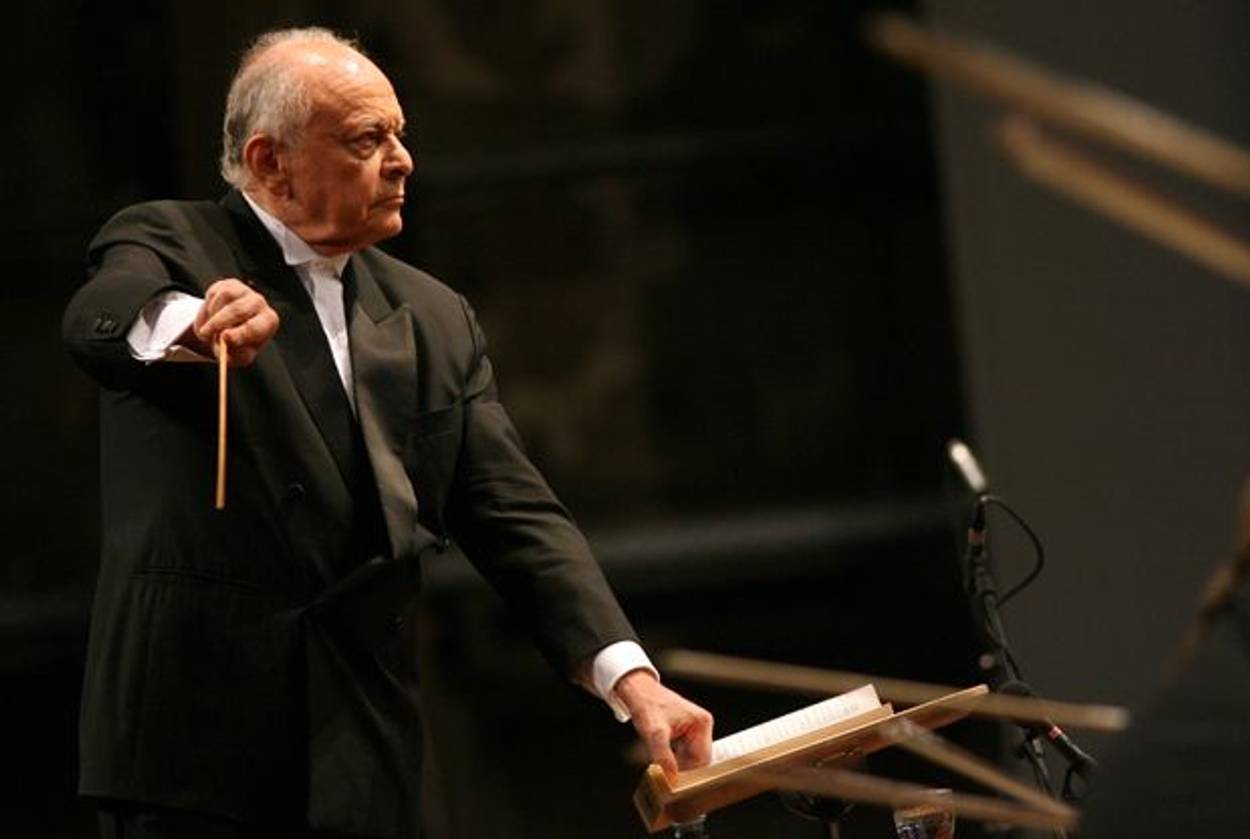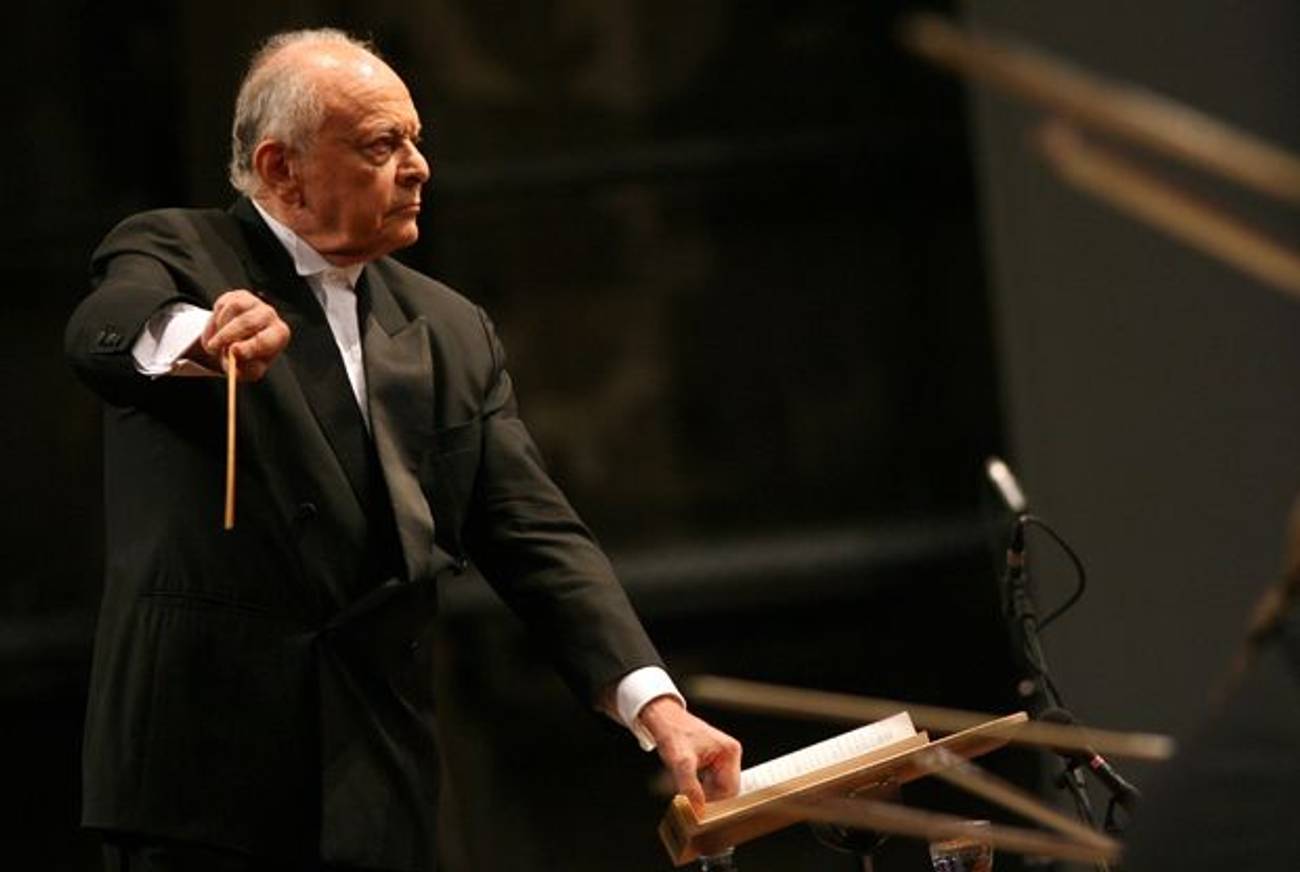Reprise
My father would chant Torah on Rosh Hashanah’s second day—the binding of Isaac. The holiday reminds me of him and his beloved Mahler symphonies.




My father was obsessed with Gustav Mahler. I grew up with the composer’s Second, Fourth, Fifth, and Ninth Symphonies blaring constantly from the living room stereo. My brother, Andy, and I were the only teenagers in America constantly yelling, “Dad! Turn that damn music down!”
My father loved Mahler’s emotionalism and range. He loved Mahler’s passion for atypical instruments: harmonium, glockenspiel, mandolin. He loved the way the symphonies incorporate snippets of bird sounds, unpretentious folk music, and Jewish ritual melodies. He loved the humor and intensity he found in Mahler’s work. Mahler’s music messes with people’s heads—the guy was a terribly polarizing figure, much like my father. Dad was a psychiatrist and enfant terrible who ran a community mental health center; he loved working with the mentally ill and loved teasing people who expected him to be a formal, cerebral figure. It delighted him that Mahler had visited Sigmund Freud, who wrote that he admired “the capability for psychological understanding of this man of genius.”
In Mahler Remembered, Norman Lebrecht quotes the 19th-century German conductor Oskar Fried on the composer:
He was a God-seeker. With incredible fanaticism, with unparalleled dedication and with unshakable love he persued a constant search for the divine, both in the individual and in man as a whole. He saw himself bearing a sacred trust; it suffused his whole being. His nature was religious thorough and through in a mystical, not a dogmatic, sense.
Mahler felt a strong connection to the Jewish faith of his childhood, yet converted to Catholicism to qualify for a job at the Vienna Court Opera. (He told a friend that the decision had “cost me a great deal.”) My father, too, felt powerfully drawn to Judaism but not to dogma; he had little interest in rules of any kind. He could chant Torah and daven like nobody’s business, but he delighted in what he called “glatt trayf.”
More than anything else, what I think drew my father to Mahler was the composer’s obsession with death. My dad had nearly died of polio at 9. At 15, he watched his own father have a heart attack in a living room chair and die in front of him. My father had his own heart attack at 39, and he barely recovered from experimental heart surgery at 56, in 1996. Mahler had a weak heart too. Both men were both convinced they would die young. Both were right. Mahler died in 1911, at 51; my dad in 2004, at 64.
The subject of the shadow of death brings me to the Rosh Hashanah connection. My father was famous in our shul for his Torah reading on the second day of the holiday—the binding of Isaac. When I was a teenager, dad’s rendition was a symphony of mortification for me. He’d do dramatically different voices for Abraham (tentative, confused), Isaac (weak, small) and God (really freaking loud). When he got to the moment of truth in the text, he’d slowly raise the Torah pointer in the air as if to plunge it into the scroll, or into Isaac’s bound body. I wanted to die. Today I find this awesome and Mahlerian. I would give anything to be able to hear it again.
The High Holidays are a good time to ponder not just how we’d choose to be different in the coming year, but also the impact of loss and the need to reach out to people on earth while we still can. As a teenager and a twentysomething, I was frequently embarrassed by my dad’s flamboyance and sappiness. The man had no filter. Because he was aware that he could die at any time, he was quick to tell my brother and me how proud he was of us and how much he loved us. (Every time he turned sentimental and beatific, I called him “The Moonie.” He just laughed.) My dad was also inappropriate a lot—he once gave a non-Jewish guest at our Passover Seder a “Crucifixion Barbie” he’d made, complete with stigmata (red nail polish) and a Popsicle-stick cross. He was no angel.
At this time of year, when we ponder the kind of person we want to be in the future, I admire my dad’s authenticity, precisely the quality that embarrassed me about him when I was young. Now I want to emulate it. I spend a lot of time being anxious about what people will think of me. I worry about the embarrassment of failing. But my dad didn’t care.
I also think about conveying my passions to my kids. I remember my dad’s delight when I emailed him from California in 1997, telling him I was thinking about going to a San Francisco Symphony performance of Mahler’s Second. I still have his emailed response:
This is the piece I joined the Boston Pro Musica to sing last year. This is the piece that has haunted me since I was 10. This is the ‘Resurrection.’ When I sang this piece in May, 1996, The Malachamovess was floating on his scrawny horse in front of the second balcony, and I looked him in his eye socket and said, ‘Listen to me, you motherfucker, listen to what I can sing!’ And he rode off in defeat. When you hear this piece, it will change your view of classical music.
My father especially loved the Second’s finale:
Aufersteh’n, ja aufershteh’n
Mein herz, Mein herz in einem nu,
Sterben werd ich um zu leben!
Sterben werd ich um zu leben!
In English, that’s:
Rise again, yes, rise again,
Will you, my heart, in an instant!
Die shall I in order to live.
Is it too much to think of the parallels between this piece and the Torah reading for the second day of Rosh Hashanah? Isaac and Abraham didn’t experience a literal resurrection, but they did leave that hillside with new lives. They’d faced death and loss. They’d seen the power and terror and confusing mercy of God. And it’s only with the awareness of loss that we’re able to rise above our own petty anxieties and take risks, express our true feelings, and live our lives the way they should be lived.
“The symphony must be like the world,” Mahler once told the composer Sibelius. “It must embrace everything!” And so must we—the spiritual, the hilarious, the embarrassing—if we’re to lead our best, richest lives.
For my dad’s unveiling in 2005, we brought a boom-box to the cemetery and blasted the Second Symphony. On the grave, we placed rocks that my cousin Daniella had taken from the garden next to the Metropolitan Opera at Lincoln Center. My husband wore my dad’s old Siegfried and Roy T-shirt. The CD’s chorus sang, “That for which you suffered, to God will it lead you.” My dad (who’d left instructions when he was in the Navy in the 1970s that if he were killed in action he wanted a full military funeral—but including Mahler) would have adored it all.
I miss him every day. When he died, my daughter Josie was not quite 3; I was eight months pregnant with her sister, Maxie. I do see him every day, in a way, in Josie’s musicality and Maxie’s goofy humor. Which isn’t enough, of course. But to be human is to experience loss; Yom Kippur’s Yizkor service makes that abundantly clear. It’s some small consolation, though, that the High Holidays are an opportunity for us all to ponder how to turn our suffering into music. Shanah Tova.
Marjorie Ingall is a former columnist for Tablet, the author of Mamaleh Knows Best, and a frequent contributor to the New York Times Book Review.